World
The Drama and Suffering of the World Chess Championship
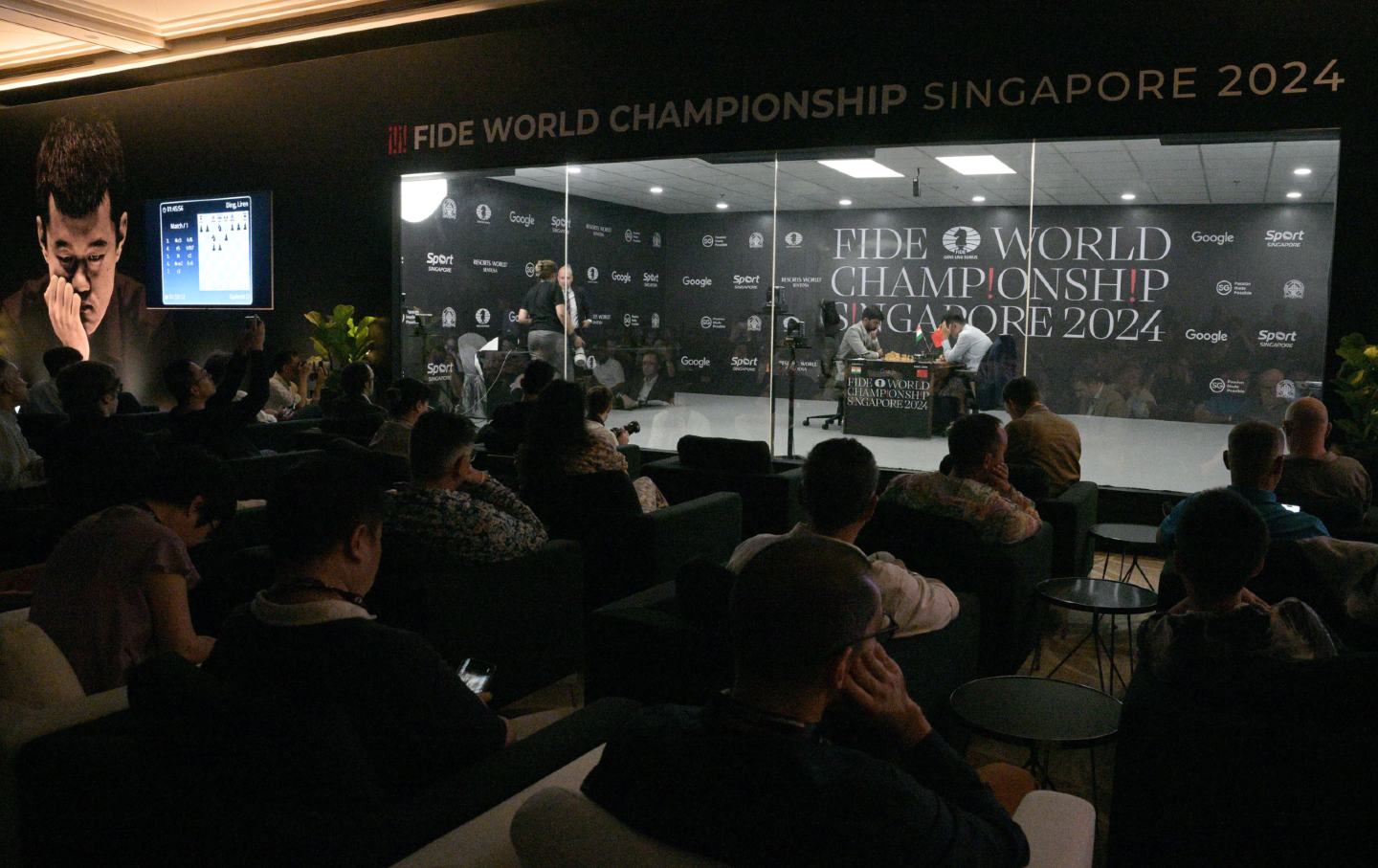
A dispatch from the pivotal Game 11 in Singapore that helped make Gukesh Dommaraju an 18-year-old chess champion.
Ding Liren, top right, and Gukesh Dommaraju, top left, are seen during Game 1 of the FIDE World Chess Championship 2024 in Singapore on November 25, 2024.
(Then Chih Wey / Xinhua via Getty Images)
Singapore—I made three associations upon entering the playing hall for Game 11 of the World Chess Championship match recently completed on Sentosa Island, Singapore. The hall was a cavernous space with 400 seats (comfortable Chesterfield-style armchairs for VIPs, dining chairs for press and the public) facing four six-by-nine-foot panes of two-way glass that looked into a separate playing chamber: Observers viewed the players, the game table, and the board and pieces in profile. First, the milieu recalled for me a recent experience of attending a public execution: office chairs positioned in rows to observe a dramatic procedure unfolding on the other side of a row of windows. Second, because the playing hall was dim and the playing chamber brightly lit, the atmosphere recalled the dungeony glass-walled prison cell of Hannibal Lecter, minus the airholes. Last, the atmosphere dredged up a whiff of what the exhibits must have been like, more than a century ago, when hoity-toity Europeans flocked to view human beings, mostly Africans, on display in so-called “human zoos.”
This last one begins to hint at the wide range of politics that lurked just beneath the surface of Game 11, and the match as a whole: For the first time in more than 130 years of chess championships, there was no white man on either side of the chessboard.
The players were a study in contrasts. Chinese national Ding Liren is 32 and was defending the championship for the first time since winning the crown almost two years ago. Ding is boyish in appearance, looking, I suspect, much as he did when he was 10. His opponent, Gukesh Dommaraju, is an 18-year-old Indian man who was attempting to become the youngest world champion in history. Gukesh looks well beyond his years—he could pass for 40, and he probably never looked 10, not even when he was 5.
There was little dawdling, and Game 11 began with announcements from the event’s host, Maurice Ashley, who in 1999 became the first Black grandmaster in the history of the game.
“Welcome ladies and gentlemen, and children of all ages,” Ashley began, a curious phrase often associated with Walt Disney and which Ashley used at the start of each game, seemingly in reference to the cartoonish experience of Sentosa Island. Once upon a time, Sentosa was a small island, but it has since been expanded by Singapore’s extensive land reclamation efforts. Loosely described, Sentosa Island is a beached Disney cruise with Harry Potter exhibits, high-end shopping, and, for two weeks in the middle of December 2024, chess.
Expectations were low for Game 11. In part, this was because expectations for the world championship, in general, have been low ever since Magnus Carlsen, universally regarded as the world’s top player, refused to defend his title for a sixth time after first becoming world champion in 2013. Carlsen hasn’t ever fully explained his decision to step away from the world championship, and when the match in Singapore was complete, he insisted that he would not attempt to regain the title: “I’m not part of that circus anymore.” The championship has endured questions of legitimacy before (e.g., Bobby Fischer, who similarly refused to defend the title), and even Ding, who more or less accidentally qualified to vie for the championship in 2022, may have been uncertain as to the validity of his status as world champion. Indeed, the moment Ding won the title over Russian player Ian Nepomniachtchi, he appeared to crumble and sink—ever since, his play has been uneven, and there have been serious questions about his mental health.
Concerns over legitimacy and sanity appeared to have been resolved in the first game in Singapore: Ding scored an impressive victory. After a draw in Game 2, Gukesh struck back in Game 3. But games 4 through 10 were all draws, and this also lowered expectations for Game 11. As though to embody fears that this world championship, like others in recent years, would descend into a string of boring games, Hikaru Nakamura, one of the world’s top players and the game’s most successful online personality, titled his video analysis of Game 10, “NOOOOOOOOOOOOOOOOOOOO!!!!”
It soon became apparent that Game 11 would be different, however. The players started with four relatively quick moves—and then Ding paused. He thought for 10 minutes.
Historically, the length of games of “classical” chess have been relatively consistent. If it’s fair to say that a baseball game might last three hours, with potential to go shorter or longer, then a good benchmark for chess might be five or six hours. The reality is more complex, and the exact details shift from tournament to tournament; in Singapore, each player had 120 minutes to make their first 40 moves, and each would receive an additional 30 minutes after reaching “time control.”
That’s why Ding’s 10-minute think raised eyebrows. The beginnings of chess games are often rote affairs, players “blitzing” through the first eight or 10 or 12 moves of well-known positions. To think for 10 minutes on move five was strange.
Then it got stranger. Ding thought for another 10 minutes, and then another 20. And then more. When he finally made his fifth move, he had exhausted half of his allotted time; one hour and two minutes had passed. Gukesh had used 32 seconds.
Whatever was happening, it seemed, wasn’t going to be like what had preceded it. This was apparent from Ding’s appearance and manner: Even early in the game he began exhibiting twitchy body-rockings, peculiar face-wiping behaviors, and erratic blinking. It was hard to imagine that he would be doing anything other than suffering for the next five hours. Already, the world champion’s behavior offered a reminder that the original name of Sentosa Island had been Pulau Blakang Mati, sometimes translated as Island of Woe.
Popular
“swipe left below to view more authors”Swipe →
I had been heartened by the image of a Black grandmaster introducing a game between a Chinese player and an Indian player—India is often cited as the birthplace of chess, though some sources claim the origin stretches back even further, to the I Ching in China. Later, when Ashley told me that the significance of the picture of a Black man, an Indian man, and a Chinese man gathered together around a chessboard hadn’t really occurred to him, I believed him. Skill in chess tends to erase color lines.
Regardless, race wasn’t the only politics afoot in Singapore.
In 2022, 44 top Russian chess players cosigned a letter to Russian President Vladimir Putin, calling for an end to the war in Ukraine. “Chess teaches you to be responsible for your actions,” the players wrote:
Each move is meaningful and a mistake can bring you to a fatal point of no return. This used to be a sport, but now the [sic] human lives, human rights and freedoms, human dignity, the present and future of our countries are at stake.
The Russian players’ call for peace was the most recent instance of a long history of cross-pollination between chess and international politics, most often involving Russia, where chess has a unique status as an intellectual pursuit. Of course, there were political dimensions to the Cold War–era 1972 match between the Soviet Union’s Boris Spassky and the US’s Bobby Fischer; in 2008, former world champion Garry Kasparov made a brief run in the Russian presidential elections (a fervent Putin critic, Kasparov has dismissed the 2024 match in Singapore as not being a true world championship, because, as measured by Elo rating, neither player ranked in the top four in the world; Gukesh, fifth, Ding 22nd); and an unsuccessful effort to have 2016’s world championship match held at Trump Tower wound up in The Mueller Report, the suggestion being that Russia had attempted to use chess to curry favor with Trump.
The 2024 match included no Russians, but I admit to having wondered whether Ding or Gukesh held opinions about their respective countries’ stances on the three-year-old Ukraine war. To use a chess metaphor, both China and India might be said to have been playing “waiting moves” on the war—that is, making moves that have no purpose other than to wait and see what happens. (It should be noted that, although chess metaphors are common in politics and war—endgame, stalemate—chess players tend to cringe when non-chess players employ chess terms to describe anything at all.) Would either player wish to exploit their moment on the global stage to issue a statement the world might hear?
On the Island of Woe, most people did not watch Game 11 from inside the playing hall. Rather, after the first half-hour of the game, most attendees exited to spend time in the Fan Zone, a large room nearby filled with tables for chess playing, and several dozen floor pillows on which to recline while watching two large televisions playing a live commentary stream being filmed two rooms away. The designated chess space also included the Experiential Zone, more an anteroom than a separate chamber, and it was here that the chess glitterati gathered before games as though it was the Met Gala, people milling about and chatting among exhibits put on display by the event’s primary sponsor, Google.
The exhibits told the story of the rise of Google’s AI companion, Gemini, through the narrative of English tech company Deep Mind, which helped launch the AI revolution by creating “engines” to conquer the games of go and chess. Acquired by Google in 2014, Deep Mind set its sights next on more substantive problems: protein structures for medical research, weather prediction, algorithms for mathematics and computing. Most simply put, Big Tech had used chess as a pawn in a larger campaign to tackle the world’s most intractable problems.
Back in the playing hall, after several more moves of Game 11, Gukesh settled in to use some of his own time. This provided time for me to observe both the players and the observers observing them. The hall was mostly silent—a number of attendants had no other job than to parade slowly through the room holding signs that said “Silence, please!”—but there was a steady thrum of whispered Mandarin, and four Indian boys seated behind me, barely younger than Gukesh, proved unable to fend off a hormonal excitement that left them chatty and giggly. The match also appeared to be a cheap date night for couples scattered here and there, most often the men pointing at the televised examination boards and attempting in coarse whispers to explain to their partners what was interesting about the position.
In the playing chamber, in contrast to Ding’s nervous twitching—as well as his habit of plucking small bits of detritus from his eyebrows and tossing them over his shoulder—Gukesh’s manners were all James Bond: He shuffled himself upright in an unrelentingly ergonomic chair, high-backed and curvy with elaborate armrests—office furniture as imagined by Game of Thrones—and tugged the cuffs of his shirt to their proper length under his sport coat. At the post-game chess conference, Gukesh would claim that he believed he was lost during the game, and was nearly falling apart at this and other moments, but to outward appearances he was as steady as a piece of metal floating in a magnetic field.
As he arrived for Game 11, Gukesh was met with cheers of “Long Live, Gukesh!” by a small team of Indian journalists. Ding had fans as well, but not cheerleaders, and despite the differences in their body language, both men, now that Game 11 had hit its stride, set about augmenting their concentration with a variety of face-touchings. Palms clamped over the mouth, double-brow-clenchings, and fist-in-cheek chinrests are so common to chess players mid-think as to suggest an untested hypothesis about a relationship between face-touching and improved intellectual performance.
Game 11 got weird again when Gukesh sank into a “deep think.” An hour advantage on a chess clock is nothing to scoff at, but that’s exactly what Gukesh did. It’s true that he had a vulnerable “backward pawn” (a center pawn that can’t be protected by another pawn), but the chess engine that was monitoring the game in the commentary studio saw nothing particularly definitive about the position. (These days, sophisticated programs evaluate positions instantly, and even top grandmasters defer to what one of the commentators in Singapore, English grandmaster David Howell, called “our silicon friends.”)
This was less true in the media center, which was a far-off room reserved for several dozen journalists covering the event from Spain, Germany, Uzbekistan, and, of course, China and India. The modern chess media is two-fold. On the one hand, there are the old-school reporters who are a blend of what one imagines baseball scouts and war correspondents to be like: grizzled men who haven’t tucked in a shirt in 15 years. On the other, there are younger and cooler writers—attractive women and hipsters—who likely think more in terms of content creation than article writing. (Netflix’s The Queen’s Gambit was a boon for the chess world, but there are concerns that while many women have been brought into the game, there has been a tendency to objectify and sexualize them—the Botez sisters, popular online chess personalities, are the game’s answer to the Kardashians.)
The old-school journalists thought Gukesh’s deep think revealed his relative weakness as a player. A Spanish journalist, a man with an Uncle Fester vibe who I was told had attended every world championship match since the 1970s, claimed that Kasparov would have calculated for less than a minute before playing c5, pushing a pawn forward. Another journalist agreed that c5 was the obvious move. Still another mumbled, “Unbelievable! Unbelievable!” as Gukesh’s deep think stretched beyond 30 minutes, then 50 minutes.
For the record, c5 was not the correct move. The move that Gukesh finally played was, in fact, the best choice according to the chess engine, but he played it after a full hour had passed. The time on the clocks was equal once again; each player had made a total of 11 moves.
Game 11 would prove to be pivotal to the match, and it would include a telling maneuver, a dramatic sacrifice rarely seen in world championship games. I will return to the story of Game 11, but first two spoiler alerts: A few days later, Gukesh clinched the match, winning 7.5-6.5, when Ding made a dramatic blunder in “time trouble” at the end of the 14th and final game. Also, I decided not to ask either player about Ukraine.
I did, however, speak with Arkady Dvorkovich, the current president of the International Chess Federation (FIDE). In 2000, I interviewed Dvorkovich’s predecessor at FIDE, the wacky Kalmyk politician, Kirsan Ilymzhinov, for my 2003 book, The Chess Artist.
Dvorkovich, however, is different from Ilymzhinov. While never a Moscow insider, Ilyumzhinov had arguably wielded more power, and had once been likened to Saddam Hussein and Moammar El-Gadhafi, on suspicion that he had ordered the murder of a journalist.
Still, Dvorkovich was cagey and mysterious. From 2012to 2018, he served as deputy prime minister to Dmitry Medvedev. In 2022, Mother Jones reported that Dvorkovich was ousted from his government position for being one of the only Russian officials to speak out publicly against the war in Ukraine. Another former deputy prime minister accused Dvorkovich of betraying Russia and hiding “behind a chessboard.” At the same time, Ukrainian chess players were seeking to have Dvorkovich ousted from FIDE, claiming that he was “a person who [is] responsible for the formation of Russia’s aggressive foreign policy.” More troublingly, Dvorkovich had been accused of repeating Russian propaganda about Nazism in Ukraine (“There is no place for Nazism or domination of some countries over others,” he told a Russian newspaper in 2022), and of questioning, in 2015, whether Russia was actually annexing Crimea (“We know that there are some Russians that fight on the side of those regions in Ukraine—some people that are coming on their own and fight,” he told the BBC).
We sat down in an impromptu FIDE office sandwiched between the Fan Zone and the commentary studio, and at first Dvorkovich was pleasant and more than happy to recall his days at Duke University, studying economics, and to explain that while he didn’t have FIDE chess rating of his own, he’d been told that he played at approximately the master level. When I turned to asking about Ukraine, Dvorkovich clammed up. He made the point that the chess world was hugely diverse, and therefore unruly. I persisted. I asked him if he stood by the quotations that appeared to defend conquered regions of Ukraine as Russian territory and to suggest that Nazism was a valid rationale for the conflict. He refused further comment and referred me to Mother Jones and the Russian article as pieces that accurately represented his views. He said he would arrange for FIDE’s public relations officer, Anna Volkova, to supply me with the articles. In fact, Volkova did, but even this underscored the messy tangle of chess’s internal politics: Volkova was one of the 44 Russian chess players who had cosigned the letter to Putin demanding an end to the war in Ukraine.
I did venture to ask Dvorkovich if there was a chess metaphor that might explain Russia’s current predicament: the Russian occupation of the Donbas region, the Russian territory under Ukraine’s control, the fall of Syria. He didn’t like the question, of course. He insisted that he was not speaking directly of the war, but he did say that two things were “probably really important” to consider with where things stood in Ukraine.
“One, to understand what kind of endgame you want to have, some vision of the future…. In chess, it’s very important…. And the second thing is that one game is just one game, the next day, or the same day, you have another game. So you should think about not just the game you are playing now, but the future…. It’s not about achieving the best possible result just now, or defeating your opponent…. Nobody wants to lose, but a draw is still a good result.”
The drama of chess games remains mostly abstract: Decisive tactics go unplayed; threatened “lines” are never realized. Hence, it may be the case that for a lay person sitting and watching 10 or 20 minutes of two players thinking, until one of them makes a move, is all that is necessary to get a sense of the atmosphere of a game of high-level chess. It’s incredibly fraught, of course, if for no other reason than that everyone present behaves as though a dangerous experiment or tense diplomatic negotiation is underway. Kibitzing a world championship chess game is the common ground between watching a poker player decide whether to call a million-dollar all-in wager and waiting for the white smoke that signals the selection of a new pope. In each case, the process remains inscrutable, and the drama accumulates with time.
The chess world is currently indulging in the pomp and circumstance of the selection of a new champion. In time, it will come to be noted that the match that crowned an 18-year-old the 18th world champion was largely determined by time. Ding blundered in the final game because he had run low on time. He lost Game 3 when his time ran out completely. And Game 11 hinged on time as well.
After the time on the clocks equalized, with both players retaining 50 minutes to play 30 moves, the time advantage seesawed back and forth. The engine didn’t show a significant advantage one way or the other, but there was a widely held belief was that if Ding could eliminate most of the pieces from the board, he would have an edge. It never got that far. Gukesh made several counter-intuitive moves with his remaining knight, and Ding’s time began to run low—six minutes to calculate deep into 12 moves before time control. Ding began to bob and cough almost constantly. His twitching was so pathological that had he stroked out, right there in front of us, we all would have said, “All the signs were there, why didn’t anyone do anything?” Distracted and disturbed, Ding overlooked a queen sacrifice—one of the rarest events in the game and almost unheard of at the world championship level—and he instantly resigned.
What followed was a minor stampede to another building for the post-game press conference. Ashley, who moderated the conferences, announced from the get-go that the process would be different this time around. Rather than both players answering questions together, a few questions would be posed to Ding, and then he would be permitted to leave in order to “compose himself.” Ashley later explained that when he first saw Ding in the moments following the game, he knew that he needed to get him out of there. This is why I decided not to ask Ding about politics or Ukraine.
The next day, Ashley told me that Ding’s loss in Game 11 was very different from his loss in Game 3, when he’d simply run out of time. “When you…make a blunder like that,” Ashley said, “it’s a very different feeling.” To “get flagged,” or lose on time, as in Game 3, is like your position having cancer. You have time to process the approaching demise. But to suffer a queen sacrifice in a world championship game, that is a sudden and violent ending, practically a humiliation. It was like walking across the street, Ashley said, thinking you’re OK, and then suddenly a truck comes out of nowhere, and boom, you’re dead.
Over the next couple of days, both Ashley and Dvorkovich strongly objected to my suggestions that there was a meaningful connection between the sport of chess and war and politics. This was peculiar, I thought. FIDE has been led by two politicians since 1995, and the live commentary of the match frequently cut away to short videos in which Google’s Gemini was asked to describe chess with brief analogies. Chess, Gemini told the audience, was as a kind of war.
I wanted to register an objection. No connection between sport and politics? Tell that to American football players who kneel during the national anthem. Tell that to basketball coaches who speak at political conventions. Tell that to sprinters who raise fists on the podium in Mexico City.
To all appearances and by every account, the new chess world champion is a humble, gracious, and well-spoken man. However, at the final press conference on the Island of Woe, surrounded by “children of all ages,” Gukesh did say something peculiar. Reflecting on 10 years of dedicated effort—that is, since he was 8 years old—he said, “I don’t remember much from my childhood.” This is why I declined to question him as well. A man who cannot remember being a child perhaps still is one, and it may be inappropriate to ask political questions of even a champion when he still has a lot of growing up to do.
With a hostile incoming administration, a massive infrastructure of courts and judges waiting to turn “freedom of speech” into a nostalgic memory, and legacy newsrooms rapidly abandoning their responsibility to produce accurate, fact-based reporting, independent media has its work cut out for itself.
At The Nation, we’re steeling ourselves for an uphill battle as we fight to uphold truth, transparency, and intellectual freedom—and we can’t do it alone.
This month, every gift The Nation receives through December 31 will be doubled, up to $75,000. If we hit the full match, we start 2025 with $150,000 in the bank to fund political commentary and analysis, deep-diving reporting, incisive media criticism, and the team that makes it all possible.
As other news organizations muffle their dissent or soften their approach, The Nation remains dedicated to speaking truth to power, engaging in patriotic dissent, and empowering our readers to fight for justice and equality. As an independent publication, we’re not beholden to stakeholders, corporate investors, or government influence. Our allegiance is to facts and transparency, to honoring our abolitionist roots, to the principles of justice and equality—and to you, our readers.
In the weeks and months ahead, the work of free and independent journalists will matter more than ever before. People will need access to accurate reporting, critical analysis, and deepened understanding of the issues they care about, from climate change and immigration to reproductive justice and political authoritarianism.
By standing with The Nation now, you’re investing not just in independent journalism grounded in truth, but also in the possibilities that truth will create.
The possibility of a galvanized public. Of a more just society. Of meaningful change, and a more radical, liberated tomorrow.
In solidarity and in action,
The Editors, The Nation
More from The Nation
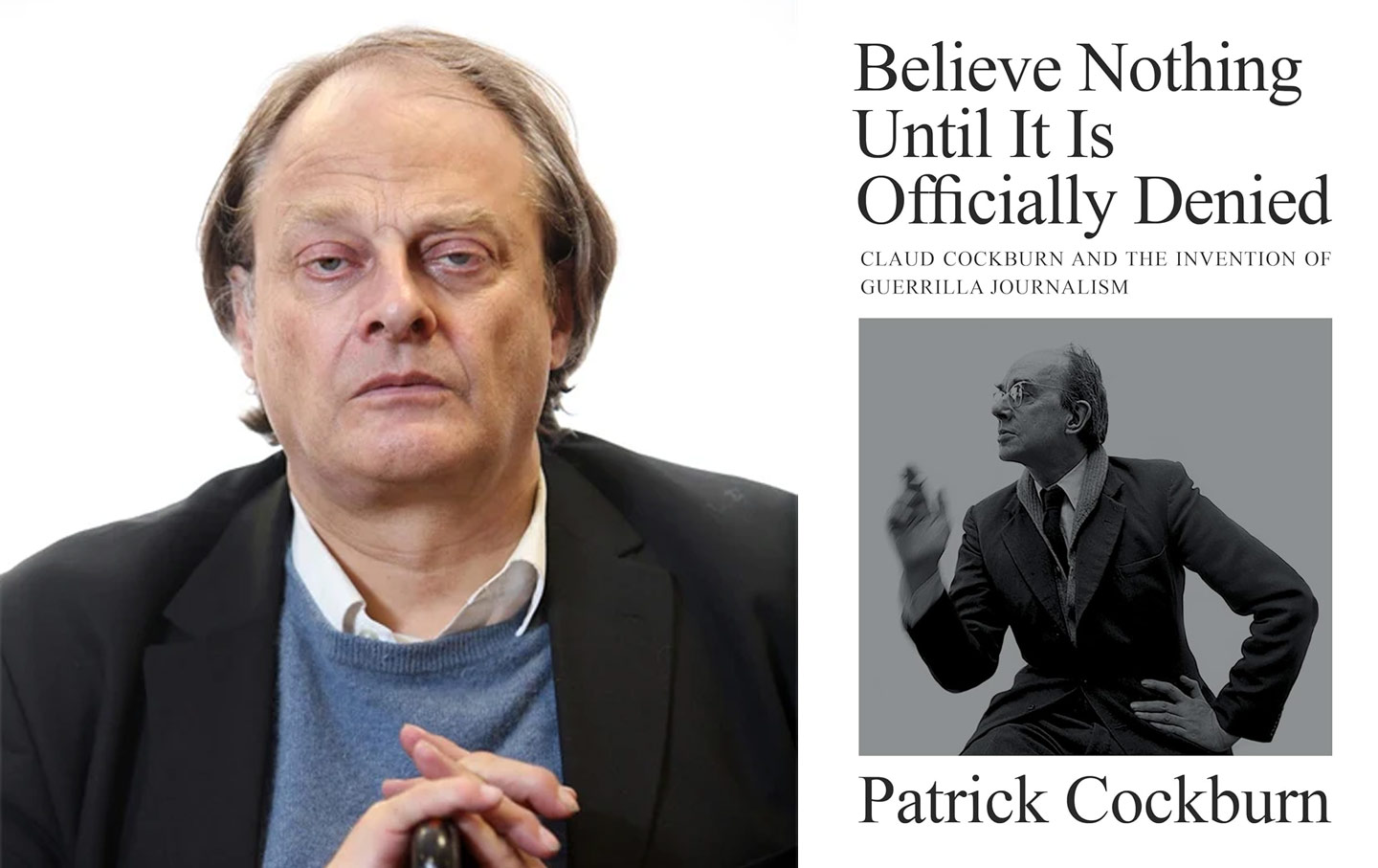
Patrick Cockburn discusses his new biography about his father, Claud, with his niece, Laura Flanders.

A case just added to the high court’s docket takes on the question of whether Medicaid can be used to pay for services at medical providers that also perform abortions.
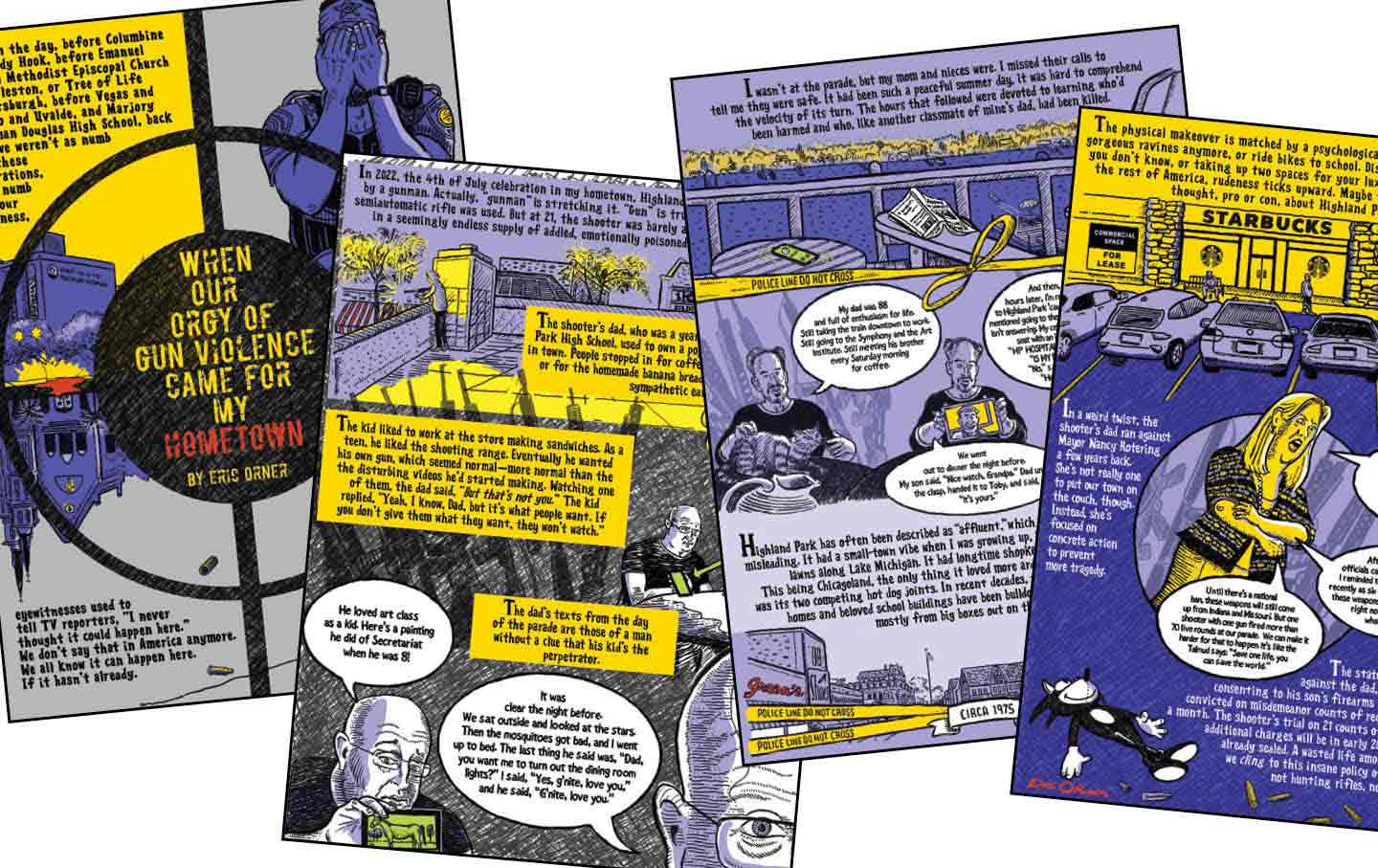
After Columbine and Sandy Hook, after the AME Church in Charleston and the Tree of Life Synagogue in Pittsburgh, we stopped saying “It can’t happen here.” And then it did.

Without a doubt, 2025 is going to be tough—but these visionaries give us hope in this uncertain time.
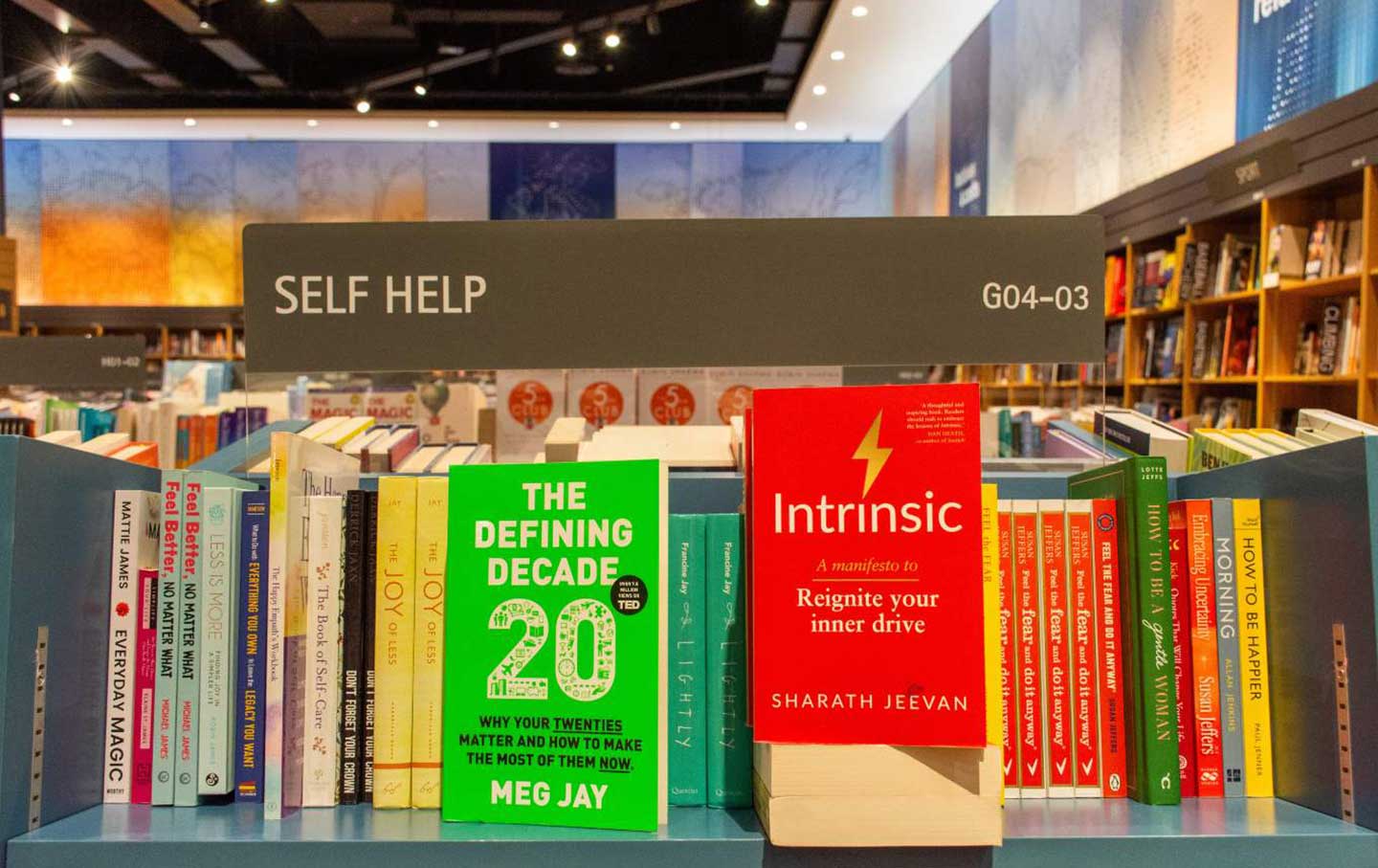
A look at the UnitedHealthcare CEO shooter’s social media accounts points to what Americans are inclined to turn to when their government fails to give them sufficient options.


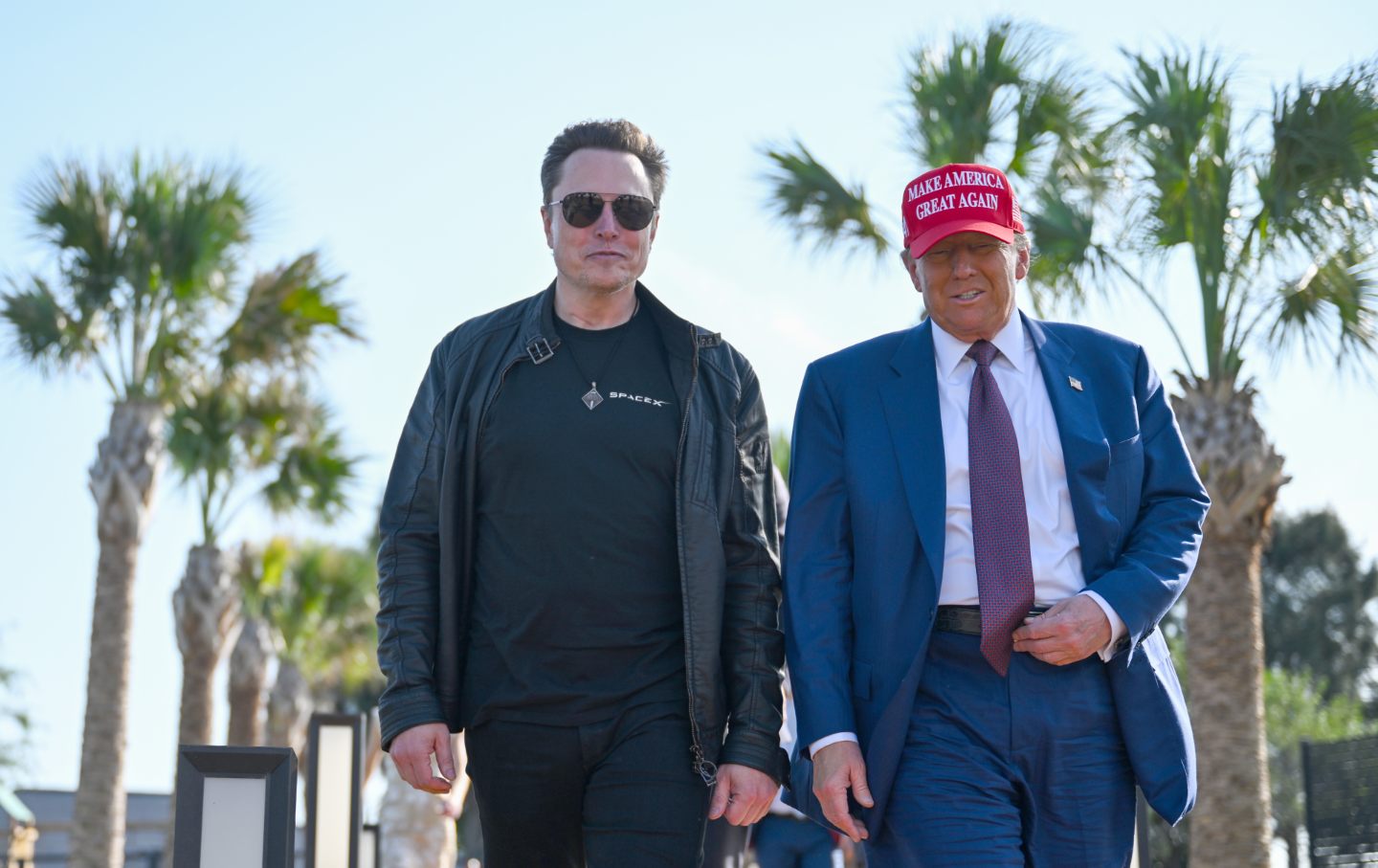


:max_bytes(150000):strip_icc()/TAL-st-vincent-lead-image-STVINCENT1224-92964add4350405196811916802203c7.jpg)





